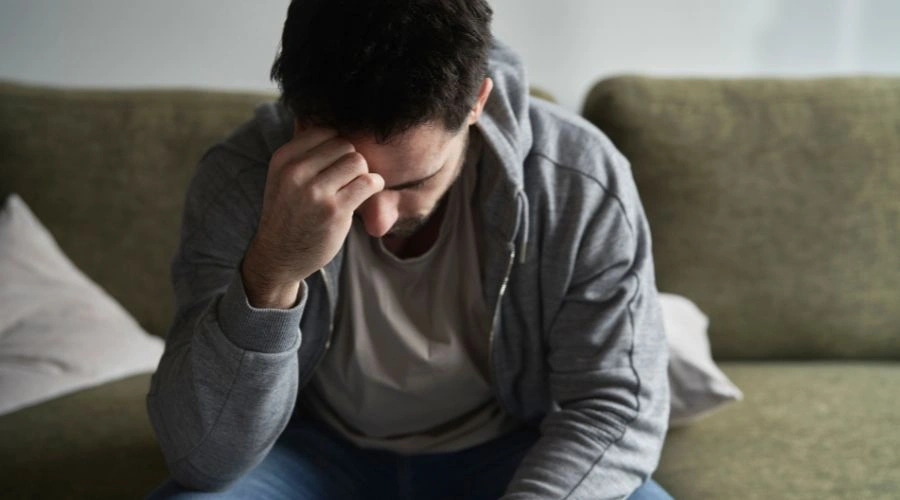What Drugs And Factors Cause Permanent Psychosis Symptoms
Although many people think of psychosis as rare and permanent, in reality, it is neither.
Psychosis is more common than one might think. It’s estimated that about 1.5% to 3.5% of people will fulfill the diagnostic criteria for a psychotic disorder at some point in their lives.
Even more will experience at least one psychosis symptom in their lives. The good news is that there are effective treatments.
Some cases of psychosis are short-lived. Not everyone will have repeated episodes. Still, psychosis can understandably cause high levels of distress for the person experiencing it and their loved ones.
When it affects your life in any regard, you might have questions such as, “Can psychosis be permanent?”
Catalina Behavioral Health is here to help. We understand psychosis, including its causes, why people might resist treatment, and how to approach symptom management. Our professionals provide compassionate care for psychosis, drug use, and other mental health concerns.
Get Effective Detox and Rehab Options at Catalina
Can Psychosis Be Permanent?
Usually, psychosis isn’t permanent. However, you can experience long-term psychosis. The length of a psychotic episode can vary.
Psychosis can last anywhere from days to years. Most of the time, however, treatment will end a psychotic episode. It can also help people manage conditions that cause repeated psychosis.
Identifying what causes or contributes to episodes can be crucial for proper treatment. Although they aren’t the only possible reasons for psychosis, drug use and mental illness can both lead to psychotic episodes.
How Long Does Drug-Induced Psychosis Last?

Substance use can cause psychosis, even in those who don’t have an existing psychotic disorder. This is known as “substance-induced psychotic disorder.”
Drugs that may be associated with substance-induced psychosis include but aren’t limited to:
- Methamphetamine.
- Cocaine.
- Cannabis.
- Alcohol.
Most people affected by drug-induced psychosis have a good long-term prognosis. They may not experience psychotic symptoms after getting sober at all. However, drug-induced psychosis can last for others.
There are some things that can make this more or less likely. Those who started using drugs at a young age, have a family history of mental illness, or who use drugs for prolonged periods are at a greater risk of chronic psychosis.
The Presence of Psychosis in Mental Health Conditions
Ongoing psychosis can require resilient commitment to treatment for a person experiencing psychosis resulting from some mental health conditions. Schizophrenia and bipolar disorder are some of the most well-known diagnoses that can involve symptoms of psychosis.
Alcohol and drug abuse can exacerbate existing psychotic disorders. Unfortunately, those with mental health disorders like schizophrenia face an elevated risk of substance abuse. An effective approach to dual-diagnosis treatment is crucial in these cases.
What Else Can Cause Psychotic Symptoms?
Substance use and mental disorders aren’t the only possible causes of psychosis symptoms. Unrelated medical conditions that could lead to psychosis include, but aren’t limited to:
- Neurological conditions.
- Infections.
- Endocrine disorders.
- Serious vitamin deficiencies (e.g., vitamin B 12 deficiency).
- Lead poisoning.
Extreme stress can also cause psychosis. Professionals are trained to rule out other possible reasons for psychotic episodes before diagnosing mental illness.
What Factors Affect the Length of Psychotic Episodes?

Various factors can affect the length of a psychotic episode. For the most part, these include:
- The cause. The reason for psychotic symptoms (e.g., brief psychotic disorder, schizophrenia, drug-induced psychosis) often affects how long an episode lasts.
- Early intervention. Prompt medical attention is key when it comes to psychosis. Treatment can reduce the length of a psychotic episode.
Without treatment, psychosis symptoms can get worse. It’s critical that people and families can access quality care.
Get Accredited Treatment Programs at Catalina
Identifying Psychosis Symptoms and Episodes
If you believe that you or a loved one is experiencing psychosis for any reason, learning the signs matters. Symptoms of psychosis and what they might look like include:
- Delusions. Firmly held false beliefs that persist even if there’s evidence to support that they aren’t true.
- Hallucinations. Seeing, feeling, or hearing things that are not there.
- Disorganized speech. Incoherent or nonsense speech, “word salad,” trouble communicating clearly.
- Grossly disorganized or catatonic behavior. Mismatched emotional expression (e.g., laughing or crying at inappropriate times), repetitive or bizarre movements, unusual body posture, and lack of responsiveness.
A person experiencing psychosis can show other changes, too. Trouble fulfilling responsibilities at work or school, mood swings, depression, self-isolation, and a decline in personal hygiene and self-care are common and tend to improve with treatment.
What are the Main Stages of Psychosis?

There are three main stages of psychosis: the prodromal phase, the acute phase, and the recovery phase.
Learning about these stages can be helpful for family members and people who are affected by psychosis personally.
The Prodromal Phase
During the prodromal phase, a person isn’t in acute or active psychosis yet. About 80-90% of people with schizophrenia experience symptoms before psychosis. These may involve changes in mood, perception, beliefs, affect, and behavior.
The Acute Phase
“Acute phase psychosis” refers to an active psychosis episode. It’s marked by the clear onset of psychosis symptoms. For example, hallucinations (e.g., hearing voices, seeing or feeling things that aren’t there), delusions, and confused thinking, speech, or behaviors.
Many people who are in the acute phase of psychosis don’t realize that they’re experiencing psychosis. Symptoms like hallucinations feel very real.
The Recovery Phase
When someone enters the recovery phase, psychosis symptoms start to alleviate. Treatment and support are vital at this time.
Treating Acute Phase Psychosis
First, treating acute psychosis involves a rapid assessment. This assessment helps medical providers determine the cause of psychosis symptoms and whether the person is at risk of harming themselves or someone else.
A brief hospitalization may be necessary for some people with psychosis. Medications like antipsychotic drugs can be used to stop acute phase psychosis.
Long-Term Management of Psychosis and Psychotic Disorders

Typically, psychotic disorders require long-term symptom management. Treatment can be sustainable and highly beneficial. We are all unique, so it may take trial and error to find out what works best for you.
Mental Health Therapy
Therapy can help treat substance use disorders. It also helps with other mental health disorders, such as bipolar disorder or schizophrenia. Different formats might be used for sessions, including but not limited to individual therapy, groups, family therapy, and couples counseling.
Specific therapeutic interventions used for psychosis can depend on what’s causing your symptoms. For example, cognitive behavioral therapy for psychosis (CBTp) is an evidence-based therapy for conditions like schizophrenia that cause recurring symptoms of psychosis.
CBTp is known to improve functioning and psychosis symptoms. There’s also evidence to suggest that CBTp can prevent or delay the transition to full psychosis in people who are at risk.
Prescription Medications for Psychosis
How long a person needs medication for can depend on multiple factors. For cases of drug-induced psychosis, as an example, antipsychotic medications might be used on a short-term basis.
Certain mental health conditions, like schizophrenia, schizoaffective disorder, or bipolar disorder, usually require ongoing medication management. A qualified prescriber, like a psychiatrist, can help you find the right medication(s).
Substance Use Disorder Treatment
Cases of drug-induced psychosis may indicate the need for substance use disorder-specific treatment. The addiction treatment programs at Catalina Behavioral Health use evidence-based therapies proven effective for substance use disorders.
Therapy for addiction can reduce your risk of relapse and help you get back on track when you need to. Lowering the risk of future drug and alcohol use can help people who have experienced drug-induced psychosis avoid repeated episodes.
We offer dual-diagnosis treatment for persons with mental health disorders like schizophrenia. That way, you or your loved one can get help for both substance use and mental health issues.
Up To 100% of Rehab Costs Covered By Insurance
Call Catalina for Proven Programs to Treat Psychosis Today
Treating psychosis effectively can depend on the cause. But, psychotic episodes do end with help. Catalina Behavioral Health works with mental health conditions and substance use disorders. We’re proud to use an individualized, whole-person perspective.
Our center in Arizona offers a range of programs that may be suitable for you or your loved one. These include medical detox, inpatient, and outpatient options. The best course of treatment for you will depend on your needs.
All calls to our center are confidential and commitment-free. Please contact us to get help for yourself or a loved one experiencing mental health or drug-related concerns today.
FAQs on How Long Psychotic Symptoms Last
Does psychosis cause brain damage?
Though it does not always happen, psychosis can cause lasting damage to brain structure and function. Getting appropriate treatment as soon as possible can prevent brain damage caused by psychosis.
Can you fully recover from a psychotic episode?

Yes. Full recovery from a psychotic episode is possible. If you have a condition requiring ongoing support, like schizophrenia, there are treatments that can support long-term management.
What is a full-blown psychosis?
Full-blown psychosis is a severe mental state where someone loses touch with reality. At this time, a person may experience hallucinations, delusions, and disorganized thoughts and behaviors.
How to break out of psychosis?
Early treatment is ideal. Even if medications aren’t required long-term, prescription medications are often used to help a person break out of psychosis.
What are the risk factors for psychosis?
Some people are at a higher risk of psychosis than others. Risk factors include:
- Family history of psychosis.
- Pre-existing mental health conditions.
- Using substances, especially during adolescence, when the brain is still developing.
Polysubstance use or chronic, heavy use of substances (as seen in addiction) increases the risk of drug-induced psychosis.
References
- Calabrese, J. (2023, May 1). Psychosis. StatPearls [Internet].
- What is drug-induced psychosis, and what drugs cause it? – goodrx. (n.d.-aa).
- Deng, X., Huang, Z., Li, X., Li, Y., Wang, Y., Wu, D., Gao, B., & Yang, X. (2012, October). Long-term follow-up of patients treated for psychotic symptoms that persist after stopping illicit drug use. Shanghai archives of psychiatry.
- Tamminga, C. A., & Lahti, A. C. (2001, December). Treatments for chronic psychosis. Dialogues in clinical neuroscience.
- U.S. National Library of Medicine. (n.d.-b). Brief psychotic disorder: Medlineplus medical encyclopedia. MedlinePlus.
- U.S. Department of Health and Human Services. (n.d.-d). Understanding psychosis. National Institute of Mental Health.
- Addington, J. (2003, March). The prodromal stage of psychotic illness: Observation, detection or intervention?. Journal of psychiatry & neuroscience : JPN.
- Acute psychosis – an overview | sciencedirect topics. (n.d.-b).
- Fact sheet cognitive behavioral therapy for psychosis (CBTP). (n.d.-i).
- JM;, B. L. A.-M. (n.d.). Managing drug-induced psychosis. International review of psychiatry (Abingdon, England).





